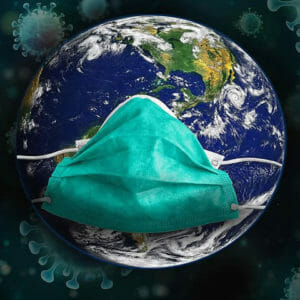ASU Center for Biodiversity Outcomes Founding Director Leah Gerber recently published an op-ed in Mexican newspaper El Universal titled “Protecting biodiversity: our best shot to prevent the next pandemic.”
In this article, Gerber highlights the relationship between environmental health and human health. Habitat degradation by human activities, such as pollution, climate change, overexploitation, species removal and introduction, parallels the emergence of zoonotic (animal-to-human transmitted) viruses with pandemic causing potential.
Gerber reminds us that the connectivity between pandemics and ecosystem destruction is not a newly found concept. She states, “The impact of biodiversity loss on human health was evident long before the COVID-19 pandemic (just look to Middle East Respiratory Syndrome, H1N1, and Ebola, for example). We could have and should have taken better action to predict, prevent and prepare for our current pandemic.”
However, instead of relishing in our disorganized response, she calls the international community to organize and prioritize the development of a global system that helps us prevent the next pandemic, “Unless we do something, the same factors will make us even more vulnerable to the next one.”
To do so, she proposes composing a global body that uses science-based practice for managing disease outbreaks called, the Zoonotic Disease Commission. This new global body will have three goals: (1) globally support basic science; (2) become a global regulatory regime; and (3) transform the global market to reduce the risk for spreading zoonotic infections.
